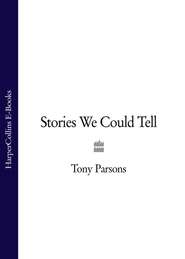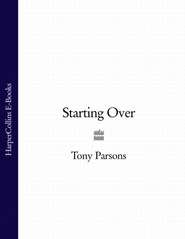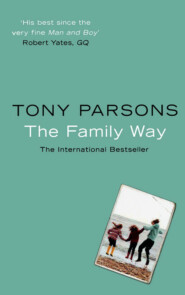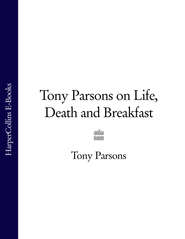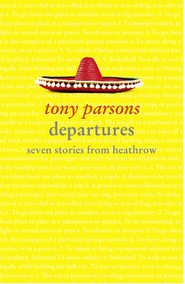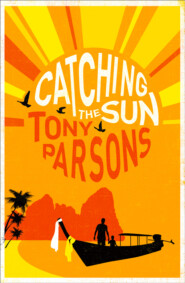По всем вопросам обращайтесь на: info@litportal.ru
(©) 2003-2025.
✖
The Complete Man and Boy Trilogy: Man and Boy, Man and Wife, Men From the Boys
Автор
Год написания книги
2018
Настройки чтения
Размер шрифта
Высота строк
Поля
‘This is going to take a while,’ the doctor said. ‘If you and your wife would like to stay with your son tonight, there’s time to go home and get some things.’
‘Oh,’ Cyd said. ‘We’re not married.’
The doctor looked at me and studied her chart.
‘You’re Patrick’s father, Mr Silver?’
‘Yes.’
‘I’m just a friend,’ Cyd said. ‘I should go,’ she told me, standing up. I could tell that she thought she was getting in the way. But she wasn’t at all. She was the only thing keeping me from falling apart.
‘And the child’s mother?’ the doctor asked.
‘She’s out of the country,’ I said. ‘Temporarily out of the country.’
‘You might want to call her,’ the doctor said.
My mother had been crying, but she wasn’t going to do it in public. She always saved her tears for behind closed doors, for the eyes of the family.
At the hospital she was all gritty optimism and common sense. She asked practical questions of the nurses. What was the risk of permanent damage? How long before we would know? Was it okay for grandparents to stay the night? It made me feel better having her around. My dad was a bit different.
The old soldier looked lost in the hospital cafeteria. He wasn’t used to sitting and waiting. He wasn’t used to situations that were beyond his control. His thick tattooed arms, the broad shoulders, his fearless old heart – they were all quite useless in here.
I knew that he would have done anything for Pat, that he loved him with the unconditional love you can probably only feel for a child, a love that’s far more difficult to feel when your perfect child has grown into one more fallible adult. He loved Pat in a way that he had once loved me. Pat was me before I had a chance to screw everything up. It gnawed at my father inside that all he could do was sit and wait.
‘Does anyone want any more tea?’ he said, desperate to do something, anything to make our miserable lot a little better.
‘We’ll have tea coming out of our ears,’ my mum said. ‘Just sit down and relax.’
‘Relax?’ he snorted, glaring at her, and then deciding to leave it.
He flopped into a cracked plastic chair and stared at the wall. There were bags under his eyes the colour of bruised fruit. Then after five minutes he went to get us some more tea. And as he waited for news of his grandson and sipped tea that he didn’t really want, my father seemed suddenly old.
‘Why don’t you try Gina again?’ my mother asked me.
I don’t know what she was expecting. Possibly that Gina would get on the next plane home and soon our little family would be united once more and forever. And maybe I hoped for that, too.
But it was no good. I went out to the reception area and called Gina’s number, but all I got was the strange purring sound of a Japanese telephone that nobody answers.
It was midnight in London, which made it eight in the morning in Tokyo. She should have been there. Unless she had already left for work. Unless she hadn’t come home last night. Her phone just kept on purring.
This was how it was going to be from now on. If I had spoken to Gina, I know that her strength and common sense would have got the better of any fear or panic. She would have been more like my mum than my dad. Or me. She would have asked what had happened, what were the dangers and when would we know. She would have found out the time of the next flight home and she would have been on it. But I just couldn’t reach her.
I hung up the phone, knowing that the rest of our lives were going to be like this, knowing that things had gone too wrong to ever be the way they were, knowing that we were too far away from each other to ever find our way back.
Eighteen (#ulink_239d0229-e2c3-594c-97ec-b3b07ad010bb)
The doctor came looking for me at five in the morning. I was in the empty cafeteria, nursing a cup of tea that had gone cold hours ago. I stood up as she came towards me, waiting for her to speak.
‘Congratulations,’ she said. ‘Your son has a very hard head.’
‘He’s going to be okay?’
‘There’s no fracture and the scan is clear. We’re going to keep him in for observation for a few days, but that’s standard procedure when we’ve put twelve stitches in a four-year-old’s head wound.’
I wanted that doctor to be my best friend. I wanted us to meet up for dinner once a week so she could pour out all her frustrations with the NHS. I would listen and I would care. She had saved my son. She was beautiful.
‘He’s really all right?’
‘He’ll have a sore head for a few weeks, and a scar for life. But, yes, he’s going to be okay.’
‘No side effects?’
‘Well, it will probably help him get girls in fifteen years’ time. Scars are quite attractive on a man, aren’t they?’
I took her hands and held them a bit too long.
‘Thank you.’
‘That’s why we’re here,’ she smiled. I could see that I was embarrassing her, but I couldn’t help it. Finally I let go. ‘Can I see him?’
He was at the far end of a ward full of children. Next to Pat there was a pretty little five-year-old in Girl Power pyjamas with her hair all gone from what I guessed was chemotherapy. Her parents were by her side, her father asleep in a chair, and her mother at the foot of the bed, staring at her daughter’s face. I walked quietly past them to my son’s bed, knowing that I had been wrong to wallow in self-pity for so long. We were lucky.
Pat was on a saline drip, his face as white as his pillow, his head swathed in bandages. I sat on his bed, stroking his free arm, and his eyes flickered open.
‘You angry with me?’ he asked, and I shook my head, afraid to speak.
He closed his eyes, and suddenly I knew that I could do this thing.
I could see that my performance so far had been pretty poor. I didn’t have enough patience. I spent too much time thinking about Gina and even Cyd. I hadn’t been watching Pat closely enough in the park. All that was undeniable. But I could do this thing.
Maybe it would never be perfect. Maybe I would make a mess of being a parent just as I had made a mess of being a husband.
But for the first time I saw that being a man would have nothing to do with it.
All families have their own legends and lore. In our little family, the first story that I featured in was when I was five years old and a dog knocked out all my front teeth.
I was playing with a neighbour’s Alsatian behind the row of shops where we had our flat. The dog was licking my face and I was loving it until he put his front paws on my chest to steady himself and tipped me over. I landed flat on my mouth, blood and teeth everywhere, my mother screaming.
I can just about remember the rush to hospital and being held over a basin as they fished out bits of broken teeth, my blood dripping all over the white enamel sink. But most of all I remember my old man insisting that he was staying with me as they put me out with the gas.
When the story was retold in our family, the punch line was what I did when I came home from the hospital with my broken mouth – namely stuff it with a bag of salt and vinegar crisps.
That ending appealed to my old man, the idea that his son came back from the hospital with eight bloody stumps where his front teeth used to be and was so tough that he immediately opened a packet of crisps. But in reality I wasn’t tough at all. I just liked salt and vinegar crisps. Even if I had to suck them.
I knew now that my dad wasn’t quite as tough as he would have liked to have been. Because nobody feels tough when they take their child to a hospital. The real punch line to that story was that my father had refused to leave my side.
Now I could understand how he must have felt watching his five-year-old son being put out with gas so that the doctors could remove bits of broken teeth from his gums and tongue.






